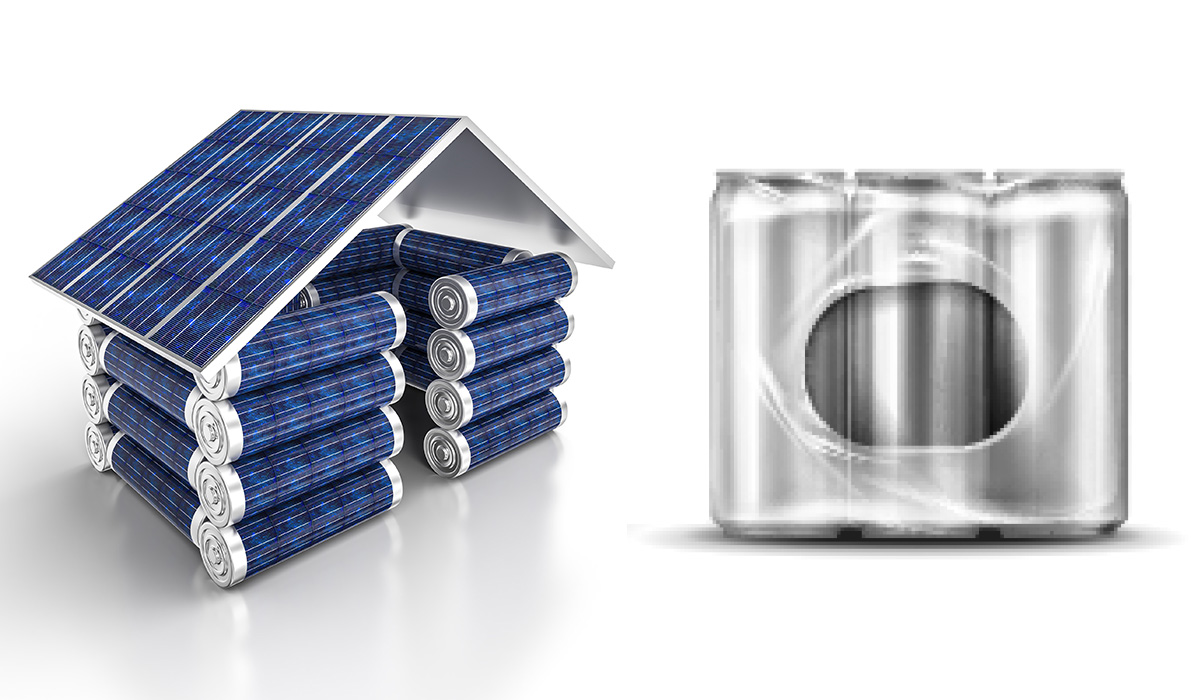The share of renewables in our electricity supply is multiplying, year after year. According to the International Renewable Energy Agency (IRENA), more than 260GW of renewable energy capacity was added globally in 2020, exceeding the previous record set in 2019 by nearly 50%. Solar and wind energy in particular are leading the way, accounting for 91% of renewables used in electricity production.
In the meantime, the price of solar electricity has dropped 89% over the last decade, with the overall prices of solar installations plummeting and the only factor slowing the wider distribution is finding affordable land and steel.
The result? Overproduction. After all, unlike fossil fuels, renewable energy is free, abundant and doesn’t harm the environment. The problem is not only that the surplus of energy goes to waste, but it can also create serious problems for energy grids when surges occur. Such excess of energy disrupts the ideal balance needed between the amount of electricity generated and demand. Part of the solution lies in improving the technology of battery storage, but there are also current solutions that can include immediate redirection and use of the energy surplus.
Here are several initiatives that show how solar surplus can be put to use and even be beneficial for consumers:
Sharing excess energy with employees
Australian manufacturer Hunter Douglas, a supplier of blinds and window awnings in Sydney, aims to become the country’s first company to sell its excess rooftop solar energy, at a discount, to its workers.
- The company, which works on advanced window treatments to reduce energy losses in homes and offices, had covered its main warehouse in 2018 with 800kW of solar panels. Hunter Douglas realized employees could benefit from this installation as well, with the sale of the oversupply at a reduced rate on weekends and on summer evenings after 4 pm, when the facility is closed.
- To put that system in place, Hunter Douglas will use the Enosi Powertracer platform and sign a new contract for energy supply with Simply Energy, ENGIE’s Australian retail arm.
- The energy traceability platform will allow users to choose the source of their energy (in that case, the rooftop solar panels) and monitor with high precision the production and consumption — a sustainable solution for employees who cannot afford such installations or live in rented homes and who will benefit from some of the lowest energy prices available in the region of New South Wales.

Charging electric vehicles for free
British renewable energy supplier Good Energy is partnering with ZapMap, which developed a UK-wide map of charging points, to offer a free charging service in the UK for electric car owners, using available excess energy generated by solar and wind power.
- Good Energy plans to set up smart EV chargers and an app which will send EV drivers a notification, 24 hours in advance, to let them know about a four-hour flash window during which extra clean energy is available and charging is free.
- The periods will vary depending on the seasons, between 11am and 3pm during the summer (April to September) and between 11pm and 3am in winter (October to March).
- The time-of-use tariff for electric vehicles powered by renewable electricity is a first in the UK. Good Energy CEO Juliet Davenport explains: “The new ‘flash’ tariff will offer people the chance to benefit from free, green power when the wind and sun are strongest. Electric vehicle drivers are already doing their bit for the climate – here’s a chance for them to go one step further and support a truly clean energy grid.”

Community batteries to pool solar energy
In Australia, the Labor party has promised that, if elected, it would invest more than $200 million to install 400 community batteries across the country. This shared battery solution would allow thousands of households with solar power to pool excess electricity generated by solar panels, store it and share it later.
- In Australia, many individual households have solar installations, but only one in 60 have battery storage. With community batteries, users will be able to access more solar energy without installing their own storage system, lowering costs (no need for maintenance or replacement) and risks.
- Community batteries provide a cheaper and more effective solution for companies running the electricity grid as well, as power can be drawn from the batteries during times of peak demand, to power homes in the evening or support the grid.
- The batteries can range from 100kW to 1MW and from the size of a fridge to a shipping container.
- Several trials are currently conducted across the country, such as the project launched in February 2021 by electricity distributor Ausgrid in Beacon Hill, a northern suburb of Sydney.

Excess energy in exchange for beers
This is brewing to be a first-ever for the renewable market! Asahi Group’s Carlton and United Breweries (CUB) in Australia is offering to buy excess solar energy from households with cans of its Victorian Bitter beer instead of cash.
- The company has already installed solar panels on the roof of its brewery in Melbourne and buys power from a solar farm. But to meet its goal to use 100% renewable power by 2025, CUB decided to take a step further with the Solar Exchange program.
- The program will allow consumers who generate excess solar energy to exchange credit on their power bill for Victorian Bitter: every A$30 worth of credit equals a slab of beer (24 cans, worth A$50), directly delivered to the users’ homes.
- Participants have to sign up on www.vbsolarexchange.com.au and then agree to switch to energy retailer Diamond Energy. There are currently 500 spots available.

